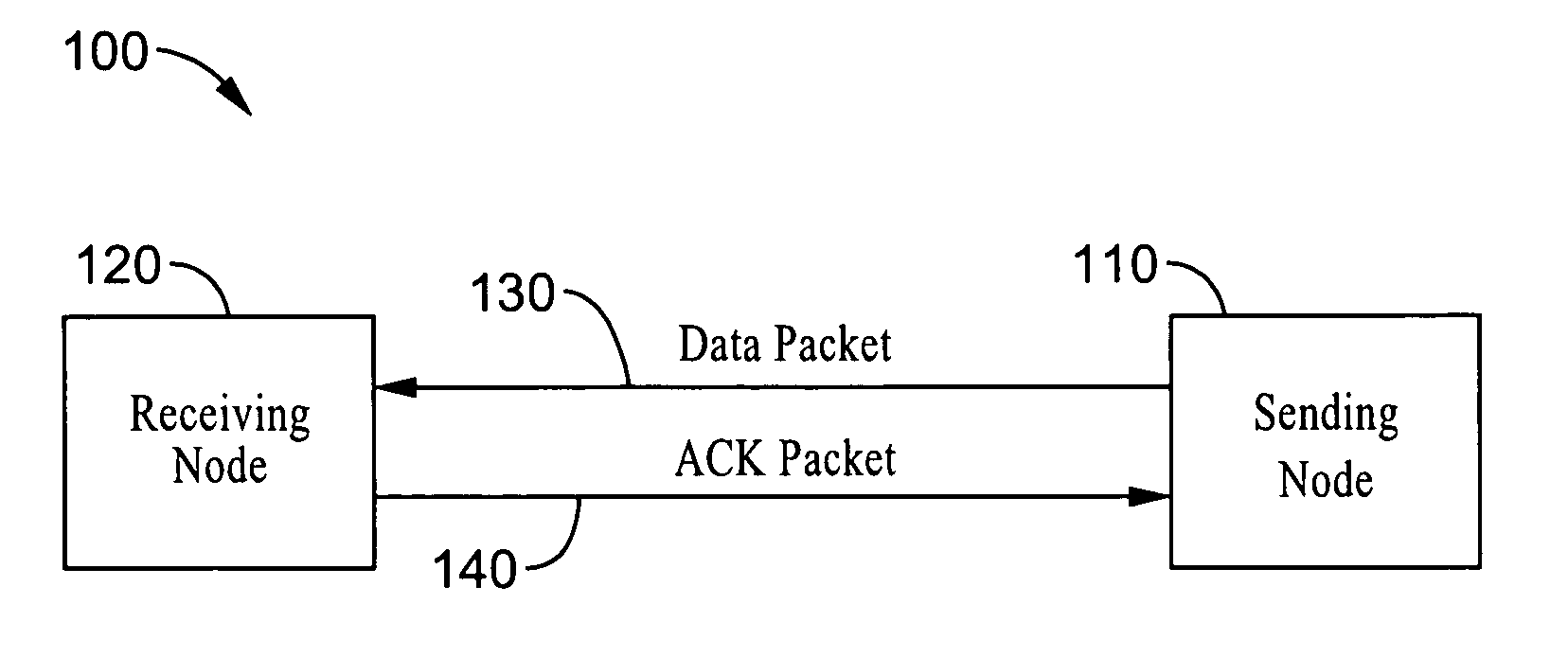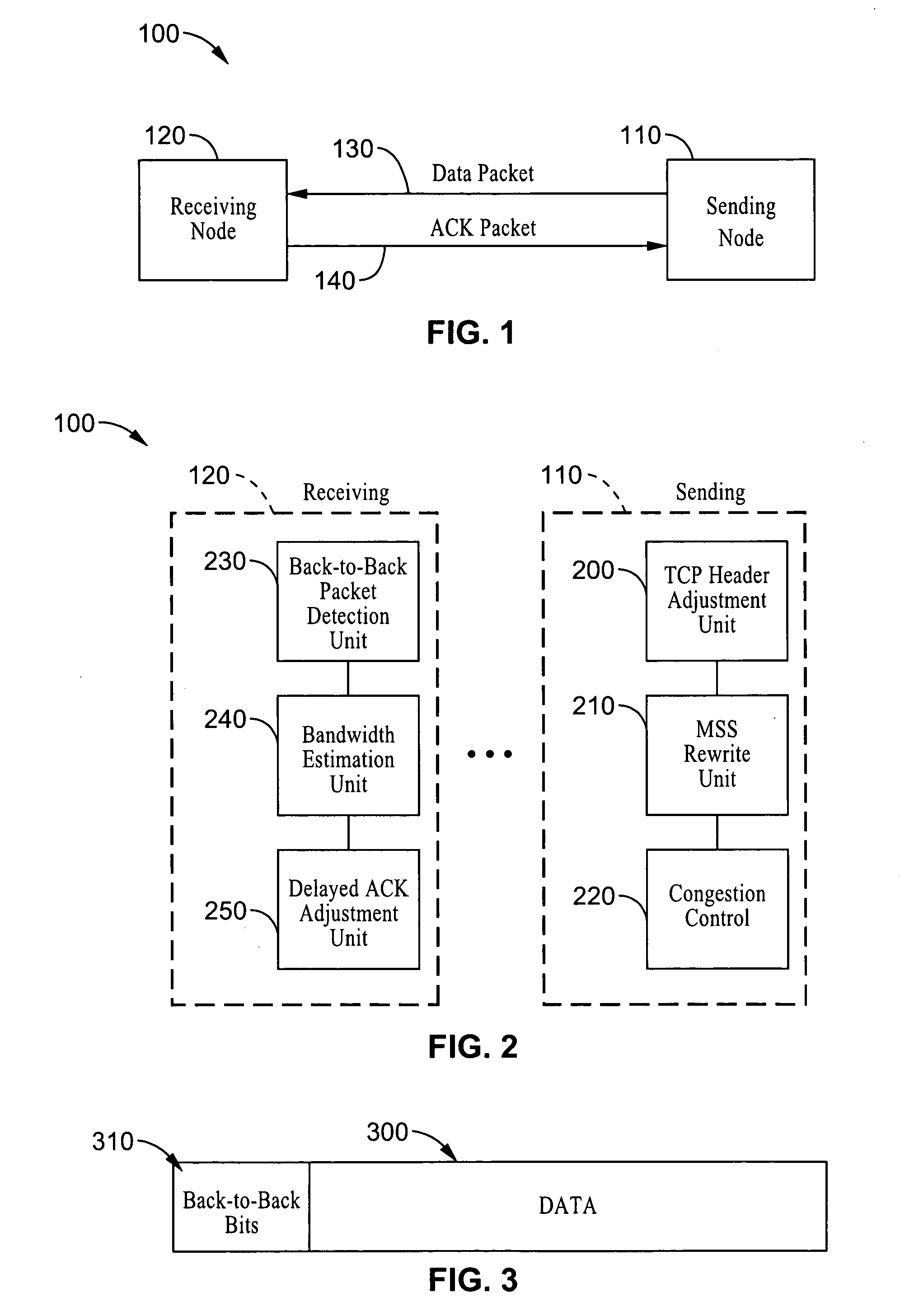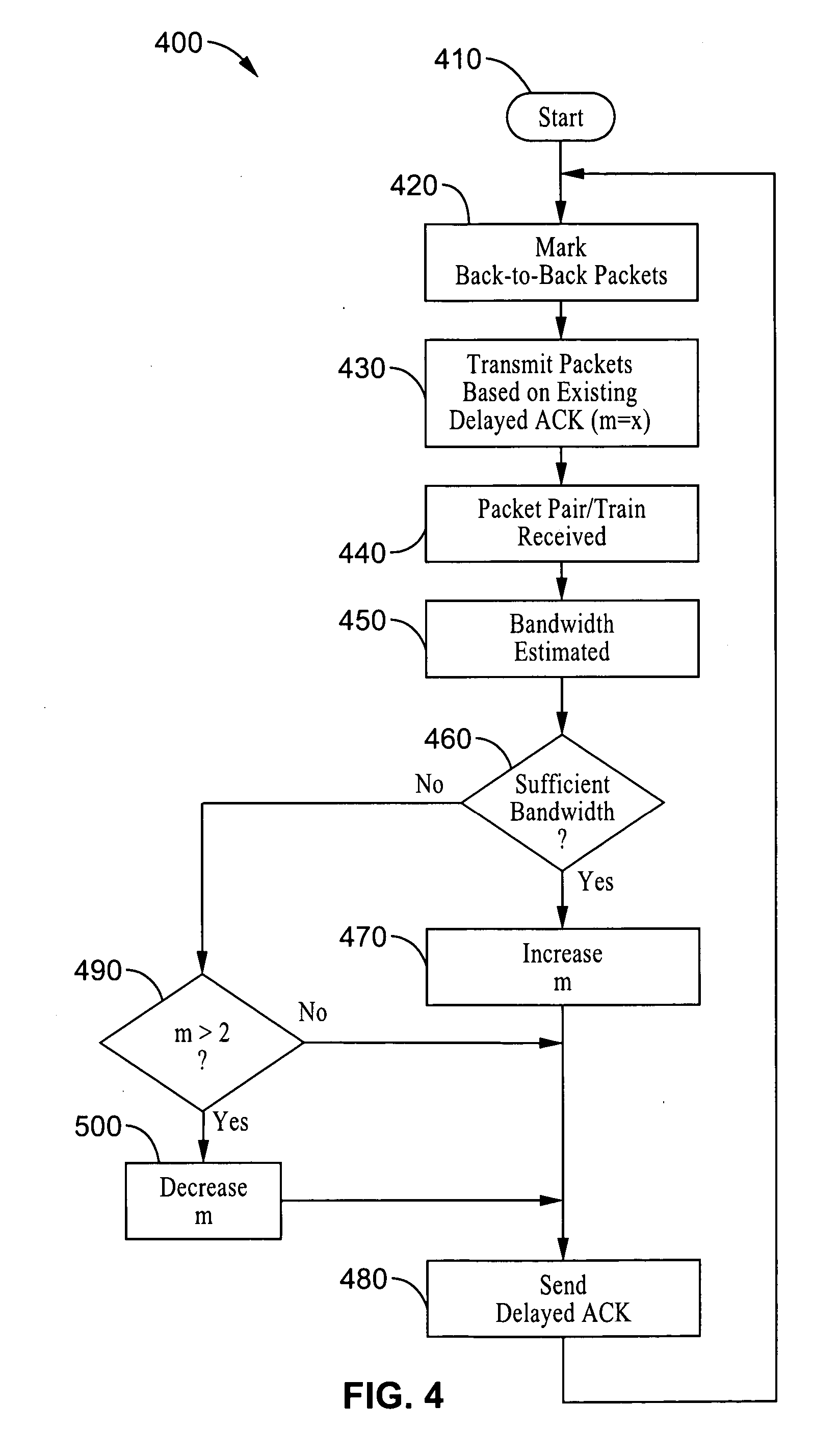TCP congestion control based on bandwidth estimation techniques
a bandwidth estimation and congestion control technology, applied in the field of data communication, can solve problems such as reducing the bandwidth estimation accuracy, and reducing the loss rate of packets
- Summary
- Abstract
- Description
- Claims
- Application Information
AI Technical Summary
Benefits of technology
Problems solved by technology
Method used
Image
Examples
Embodiment Construction
[0054] Referring more specifically to the drawings, for illustrative purposes the present invention is embodied in the apparatus generally shown in FIG. 1 through FIG. 4. It will be appreciated that the apparatus may vary as to configuration and as to details of the parts, and that the method may vary as to the specific steps and sequence, without departing from the basic concepts as disclosed herein.
[0055] A system and method for improving data communication in a computer network, such as the Internet or a packet switched network, is disclosed herein. Although discussed with reference to certain illustrated embodiments, upon review of this specification, those of ordinary skill in the art will recognize that the present invention may find application in a variety of systems. Therefore, in the following description the illustrated embodiments should be regarded as exemplary only and should not be deemed to be limiting in scope. It should also be noted that as used herein, the term ...
PUM
 Login to View More
Login to View More Abstract
Description
Claims
Application Information
 Login to View More
Login to View More - R&D
- Intellectual Property
- Life Sciences
- Materials
- Tech Scout
- Unparalleled Data Quality
- Higher Quality Content
- 60% Fewer Hallucinations
Browse by: Latest US Patents, China's latest patents, Technical Efficacy Thesaurus, Application Domain, Technology Topic, Popular Technical Reports.
© 2025 PatSnap. All rights reserved.Legal|Privacy policy|Modern Slavery Act Transparency Statement|Sitemap|About US| Contact US: help@patsnap.com



